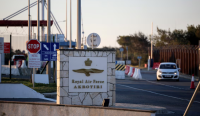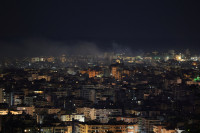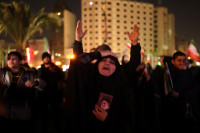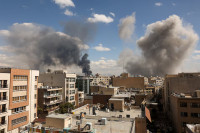World
Ukraine set to extend martial law again, pushing back prospect of elections
Parliamentary and presidential elections were last held in Ukraine in 2019. Parliamentary approval is required every 90 days to extend martial law, which allows troops to be mobilised and the electoral cycle to be suspended.
Reuters
Ukrainian lawmakers are almost certain to extend martial law again before it expires on May 9, the parliamentary speaker has said, determined to uphold democracy even as the United States and Russia pressure Kyiv to hold a new vote.
Speaking at the heavily guarded parliament, Ruslan Stefanchuk underlined the practical and legal implausibility of holding free and fair elections in a country that is part-occupied and still under constant attack, three years after Russia’s full-scale invasion.Since invading Ukraine in strength in February 2022, Russia has sought to paint the government and particularly President Volodymyr Zelenskiy, whose five-year term ended last year, as illegitimate.
But Stefanchuk stressed Ukraine’s commitment to democratic elections, contrasting it with Russia, which has eliminated political opposition at home and been forced to deny allegations of covert campaigns to influence a host of elections abroad.
“It is a priority for me because Ukraine has always been - historically, and it is now, and will remain - a democratic Ukraine,” he told Reuters in an interview on Thursday.
“This is what distinguishes us from the Russian Federation. On this issue, we are on two banks of the civilisation abyss.”
Preparations for future elections have begun, he said, but are in the very early stages.
Parliamentary and presidential elections were last held in Ukraine in 2019. Parliamentary approval is required every 90 days to extend martial law, which allows troops to be mobilised and the electoral cycle to be suspended.
NO ELECTIONS WHILE SOLDIERS FIGHT, CIVILIANS SEEK SHELTER
Stefanchuk, who would take over were Zelenskiy to die or be incapacitated, said parliament was almost certain to renew its approval because “the war is not over”.
That means about 800,000 potential voters are in uniform: fighting or training.
Nearly five million of Ukraine’s pre-war population of about 44 million are registered as internally displaced, while more than four million Ukrainians are registered as living in European Union countries alone, to say nothing of those displaced but unregistered.
Around a fifth of Ukraine, in the south and east, is occupied by Russia.
Although Donald Trump began his second term as US president putting continued military support for Kyiv in question amid overtures to Russia, and demanding a swift end to the war, negotiations are stalled.
Meanwhile, fighting still rages on a front line 1,000 km (600 miles) long, and the towns and cities in the rest of the country live in fear of Russian bombardment.
Even when the conflict ends, recovering enough to hold a proper election will be an enormous challenge, for which Ukraine will need to create the framework from scratch, including a new law to spell out the timing, rules and procedures.
Stefanchuk said lawmakers, electoral officials and other experts were working on the issues, but had not yet begun drafting a bill.
No decision has yet been made on the sequencing of the local, parliamentary and presidential ballots that will all have to be held.
“Even from a theoretical point of view, it’s unrealistic to hold all elections at the same time,” Stefanchuk said.
Before the war, elections cost around 4 billion hryvnias ($100 million) to stage. But in addition to financing campaigns and voting, Kyiv will also need to guarantee security and pre-empt any possible manipulation attempts by its enemy, Moscow.




 9.83°C Kathmandu
9.83°C Kathmandu














